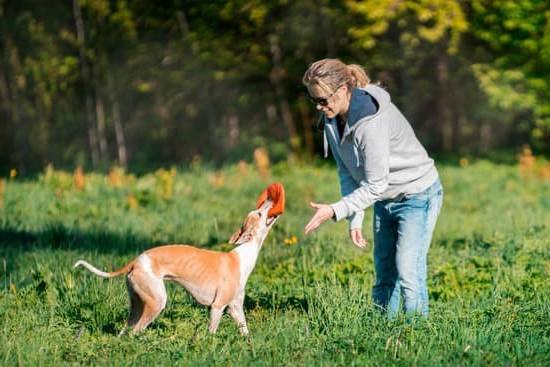Are you interested in learning how to become a service dog trainer in New Zealand? Service dog trainers play a crucial role in the lives of individuals with disabilities, providing them with the support and independence they need. In this article, we will explore the essential steps and requirements for pursuing a career as a service dog trainer in NZ.
Service dog trainers are responsible for training and preparing dogs to assist individuals with disabilities, whether it be physical, mental or emotional. These highly skilled professionals are an integral part of the assistance dog industry, helping to improve the quality of life for those in need. If you have a passion for working with animals and making a difference in people’s lives, becoming a service dog trainer may be the perfect career path for you.
In this comprehensive guide, we will delve into the importance of certification and training for service dog trainers in New Zealand. We will also discuss the education and experience requirements necessary to succeed in this field. Additionally, we will explore specialized training programs, internships, and volunteering opportunities available to aspiring service dog trainers. So if you’re ready to embark on this rewarding journey, read on to discover what it takes to become a certified service dog trainer in NZ.
The Importance of Certification and Training in New Zealand
Becoming a service dog trainer in New Zealand requires a deep understanding of the importance of certification and training. By obtaining the necessary qualifications, individuals can ensure that they are providing the highest quality of service to both dogs and their owners. Additionally, certification and training provide credibility and recognition within the industry, which can lead to greater opportunities for career advancement.
Regulatory Requirements
In New Zealand, there are specific regulatory requirements for individuals who wish to work as service dog trainers. These requirements differ depending on the type of training being provided, such as guide dog training or therapy dog training. Understanding and complying with these regulations is essential for anyone looking to pursue a career in this field.
Professional Development
Continuing education and professional development are integral components of maintaining excellence as a service dog trainer in New Zealand. Receiving ongoing training helps individuals stay current with the latest techniques, developments, and best practices in the industry. This ensures that trainers are equipped to handle various situations and address the unique needs of different clients and their service dogs.
Ethical Considerations
Certification and training also encompass ethical considerations that are crucial for maintaining the welfare of service dogs. It is important for trainers to adhere to ethical standards and guidelines when working with these animals, ensuring that their physical and emotional well-being is always a top priority. By upholding these ethical principles, trainers can build trust with clients while promoting responsible and compassionate practices within the industry.
Education and Experience Requirements for Service Dog Trainers in NZ
Becoming a service dog trainer in New Zealand requires a combination of education and hands-on experience. While there is no specific degree required to become a service dog trainer, having a background in animal behavior, psychology, or a related field can be beneficial. Many successful service dog trainers have completed courses or earned certifications through recognized organizations in the field.
In addition to formal education, experience working with animals is essential for aspiring service dog trainers. This can include volunteering at animal shelters, working as a dog walker or pet sitter, or assisting experienced trainers. Building a strong foundation of knowledge and practical skills is crucial for success in this competitive field.
It’s also important for service dog trainers to have a good understanding of canine behavior and training techniques. This includes learning about positive reinforcement methods, obedience training, and how to address behavioral issues. Aspiring trainers should also stay updated on the latest research and developments in the field of animal training.
| Requirements | Educational Background |
|---|---|
| Formal Education | Degree in Animal Behavior or Related Field |
| Certifications | Courses from Recognized Organizations |
| Experience | Volunteering/Working with Animals |
Specialized Training Programs and Workshops Available in New Zealand
In New Zealand, there are several specialized training programs and workshops designed to provide aspiring service dog trainers with the knowledge and skills needed to excel in this field. These programs offer comprehensive education on topics such as canine behavior, obedience training, disability laws, and more. One example is the Service Dog Trainer Certification Program offered by the New Zealand Association of Assistance Dog Trainers (NZAADT).
The NZAADT program is designed for individuals who are passionate about working with dogs and helping people with disabilities. The curriculum covers a range of important subjects, including service dog laws and regulations, ethical considerations in training, practical training techniques, and understanding various types of disabilities. Participants also have the opportunity to learn from experienced trainers and interact with service dogs in training.
In addition to formal certification programs, there are also workshops and seminars available in New Zealand that focus on specific areas of service dog training. These events may cover topics such as advanced obedience training, scent detection work, anxiety assistance training for dogs, and more. Attending these workshops can provide valuable hands-on experience and networking opportunities within the service dog training community.
| Program/Workshop | Focus |
|---|---|
| Service Dog Trainer Certification Program offered by NZAADT | Comprehensive education on canine behavior, obedience training, disability laws |
| Specialized Workshops and Seminars | Advanced obedience training, scent detection work, anxiety assistance |
Building a Strong Foundation
To become a successful service dog trainer in New Zealand, it is essential to have a strong foundation in understanding canine behavior and training techniques. This knowledge forms the basis for effectively training and shaping the behaviors of service dogs to assist individuals with disabilities. Aspiring trainers can develop this foundation through various educational and practical avenues, such as:
- Enrolling in accredited dog training courses or programs: Seek out reputable institutions or organizations that offer comprehensive courses focused on canine behavior, learning theory, and positive reinforcement training techniques. These courses provide invaluable knowledge that can be directly applied to the training of service dogs.
- Attending workshops and seminars: Take advantage of specialized workshops and seminars conducted by experienced service dog trainers or behaviorists. These events often cover topics such as communication signals, body language interpretation, and problem-solving strategies when working with dogs.
- Engaging in self-study: Supplement formal education with self-study materials such as books, online resources, and videos focused on dog behavior and training. Building a personal library of resources will help broaden your understanding and expertise in this field.
It is important for aspiring service dog trainers to continuously educate themselves on new developments in the field of canine behavior and training. By building a strong foundation in understanding these concepts, individuals are better equipped to train and shape the behaviors of service dogs that will enhance the lives of their future handlers.
Gaining Hands-on Experience
Gaining practical experience through internships and volunteering opportunities is essential for individuals aspiring to become service dog trainers in New Zealand. These hands-on experiences provide valuable insights into the daily responsibilities of a service dog trainer and allow individuals to work directly with dogs in training.
Internship Opportunities
Many organizations in New Zealand offer internship programs specifically designed for individuals interested in becoming service dog trainers. These programs may involve working alongside experienced trainers, observing training sessions, assisting with basic obedience training, and learning about the specialized techniques used in training service dogs. Some well-established organizations also offer structured mentorship programs as part of their internships, providing invaluable guidance and support to aspiring trainers.
Volunteering Opportunities
Volunteering at local animal shelters, rescue organizations, or non-profit groups focused on canine assistance can also provide hands-on experience for individuals looking to pursue a career as a service dog trainer. This type of volunteer work allows individuals to interact with a wide range of dogs, learn about different behavioral traits, and gain insight into the challenges that come with training and working with dogs from diverse backgrounds.
The Benefits of Practical Experience
By participating in internships and volunteering opportunities, aspiring service dog trainers can develop essential skills such as patience, empathy, communication, and problem-solving. These experiences also allow individuals to establish connections within the industry, gain references for future employment opportunities, and demonstrate their dedication to potential employers or certification boards. Ultimately, gaining hands-on experience through internships and volunteering can set the stage for a successful career as a certified service dog trainer in New Zealand.
The Certification Process
Becoming a certified service dog trainer in New Zealand requires not only a passion for working with animals but also a solid understanding of canine behavior and training techniques. Here are the essential steps to becoming a certified service dog trainer in NZ:
1. Research Accredited Certification Programs: It is crucial to research and identify accredited certification programs for service dog trainers in New Zealand. Look for programs that are recognized by reputable organizations such as Service Dog Trainers Accreditation Council (SDTAC) or similar bodies.
2. Meet Education and Experience Requirements: Most certification programs will have specific education and experience requirements that aspiring trainers must meet before applying for certification. This may include completing courses in animal behavior, psychology, or related fields, as well as gaining hands-on experience working with dogs.
3. Complete Certification Training: Once the education and experience requirements are met, aspiring service dog trainers can enroll in certification training programs. These programs typically cover topics such as positive reinforcement training methods, handling service dogs with special needs, and understanding legal requirements for service dogs in NZ.
By following these steps, individuals can work towards becoming a certified service dog trainer in New Zealand and making a positive impact on the lives of both dogs and their human companions. Obtaining proper certification not only demonstrates expertise and dedication but also opens up opportunities for career advancement within the field of service dog training.
The Road to Success
Starting your own service dog training business in New Zealand can be a rewarding and fulfilling career choice for those passionate about working with animals and making a positive impact on individuals in need. As you embark on this journey, it’s essential to consider some key tips for success in establishing and growing your business.
First and foremost, it’s important to conduct thorough market research to understand the demand for service dog training in specific regions of New Zealand. Identifying the needs of potential clients, such as individuals with disabilities or organizations serving the community, will help you tailor your services to address those needs effectively.
Additionally, developing a strong network within the local community and forging partnerships with veterinarians, pet stores, and other animal-related businesses can be beneficial for promoting your services and gaining referrals. Building a positive reputation through word-of-mouth recommendations is invaluable in this industry.
Furthermore, embracing ongoing education and professional development is crucial for staying up-to-date with the latest advancements in dog training techniques and methods. Attending workshops, seminars, and conferences related to animal behavior and training can enhance your skills and credibility as a service dog trainer.
By implementing these tips, aspiring service dog trainers can lay a solid foundation for their business endeavors while positively impacting the lives of both dogs and their human companions in New Zealand. With dedication, perseverance, and a genuine passion for helping others through the power of canine companionship, starting a successful service dog training business is well within reach.
Frequently Asked Questions
How Do I Become a Certified Dog Trainer in NZ?
To become a certified dog trainer in New Zealand, you can start by gaining experience working with dogs through volunteering at animal shelters or getting a job at a dog training facility. Then, you’ll need to complete a formal education program in dog training and behavior, such as those offered by the New Zealand Certificate in Animal Care.
After completing the necessary coursework and gaining practical experience, you can then pursue certification through organizations like the Association of Pet Dog Trainers (APDT) or International Association of Canine Professionals (IACP).
How Do I Become a Dog Behaviorist?
Becoming a dog behaviorist typically requires a deeper understanding of canine psychology and behavior modification techniques. To pursue this career path, you’ll need to earn a bachelor’s degree in animal science, animal behavior, biology, psychology or a related field.
You may also be required to obtain hands-on experience working with dogs in various settings. Once you’ve completed your education and gained relevant experience, you can seek certification as a professional dog behaviorist through organizations like the International Association of Animal Behavior Consultants (IAABC).
What Do They Call Dog Trainers?
People who train dogs professionally are often referred to simply as “dog trainers.” This title encompasses individuals who work with dogs on basic obedience training, behavior modification, agility training, and other specialized areas.
Some trainers may also specialize in working with particular breeds or types of dogs, such as service dogs or hunting dogs. Regardless of their specific focus, dog trainers dedicate themselves to helping canines develop good manners and learn essential skills for living harmoniously with humans.

Welcome to the blog! I am a professional dog trainer and have been working with dogs for many years. In this blog, I will be discussing various topics related to dog training, including tips, tricks, and advice. I hope you find this information helpful and informative. Thanks for reading!





